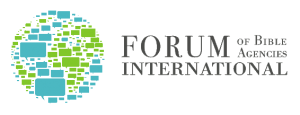“Bible poverty” is global and it is the result that occurs in any context or setting that blocks or hinders people from having access to the Scriptures in a language they understand well and engaging with them in ways that transform their lives.
This article considers barriers and bridges in response to three questions: (1) Why do the Scriptures not transform lives when they are available? (2) Why do more than one billion people not have the Scriptures in their language? (3) Why are the Scriptures that are available so often limited only to those that can read?
What are the signs of Bible poverty? It is present where people are hindered by barriers from having access to the Scriptures in a language they understand well and engaging with them in ways that transform their lives. It cuts across economic levels, social status, religious identity, ethnic groups, and languages. Bible poverty affects regions of religious persecution. It affects the non-literate, the deaf, and the blind. Still others, like the Befang of Cameroon, simply do not have any Scripture in their language.
The paper is an overview of the Scripture in Mission topic to be discussed at the Lausanne Congress, Cape Town 2010.



